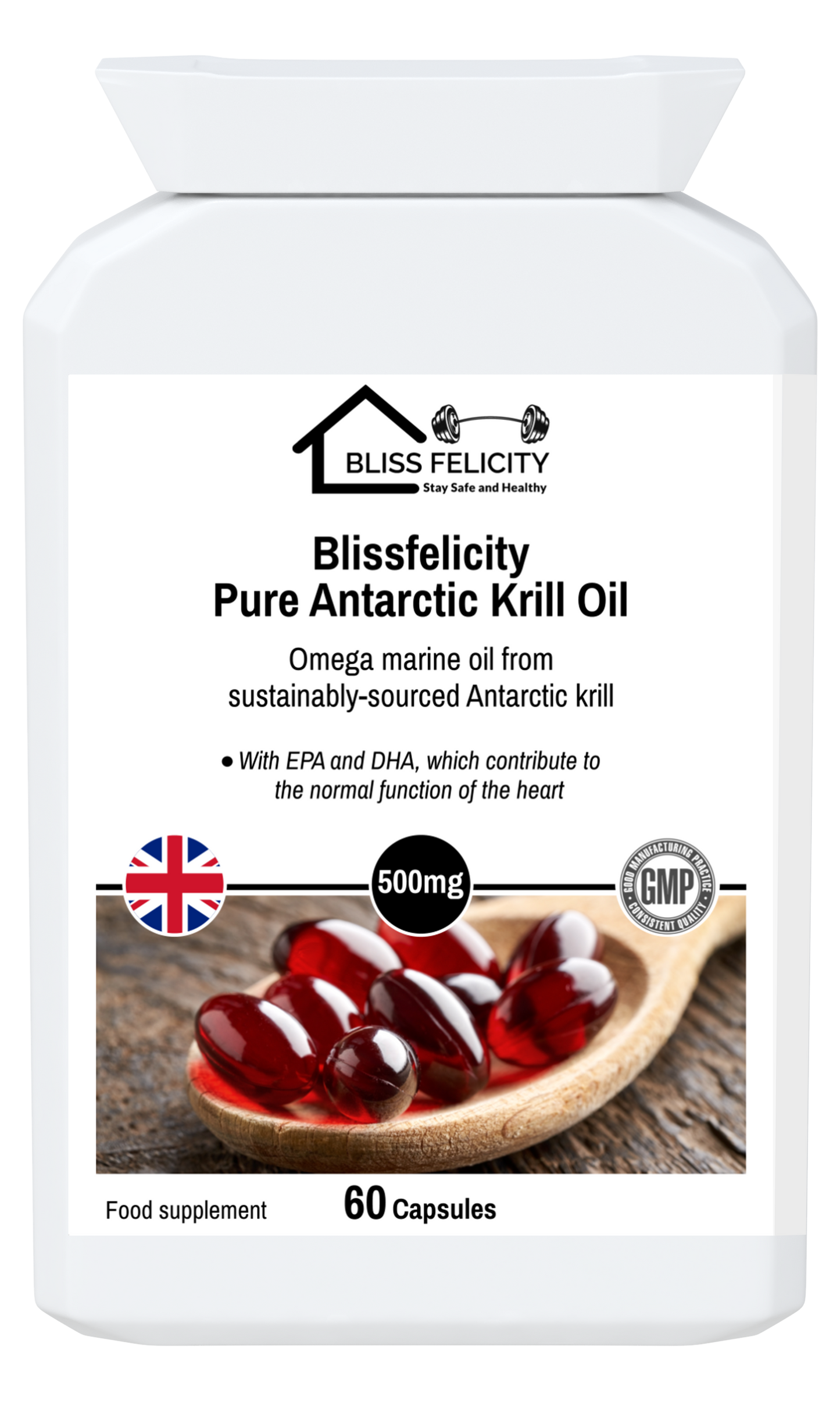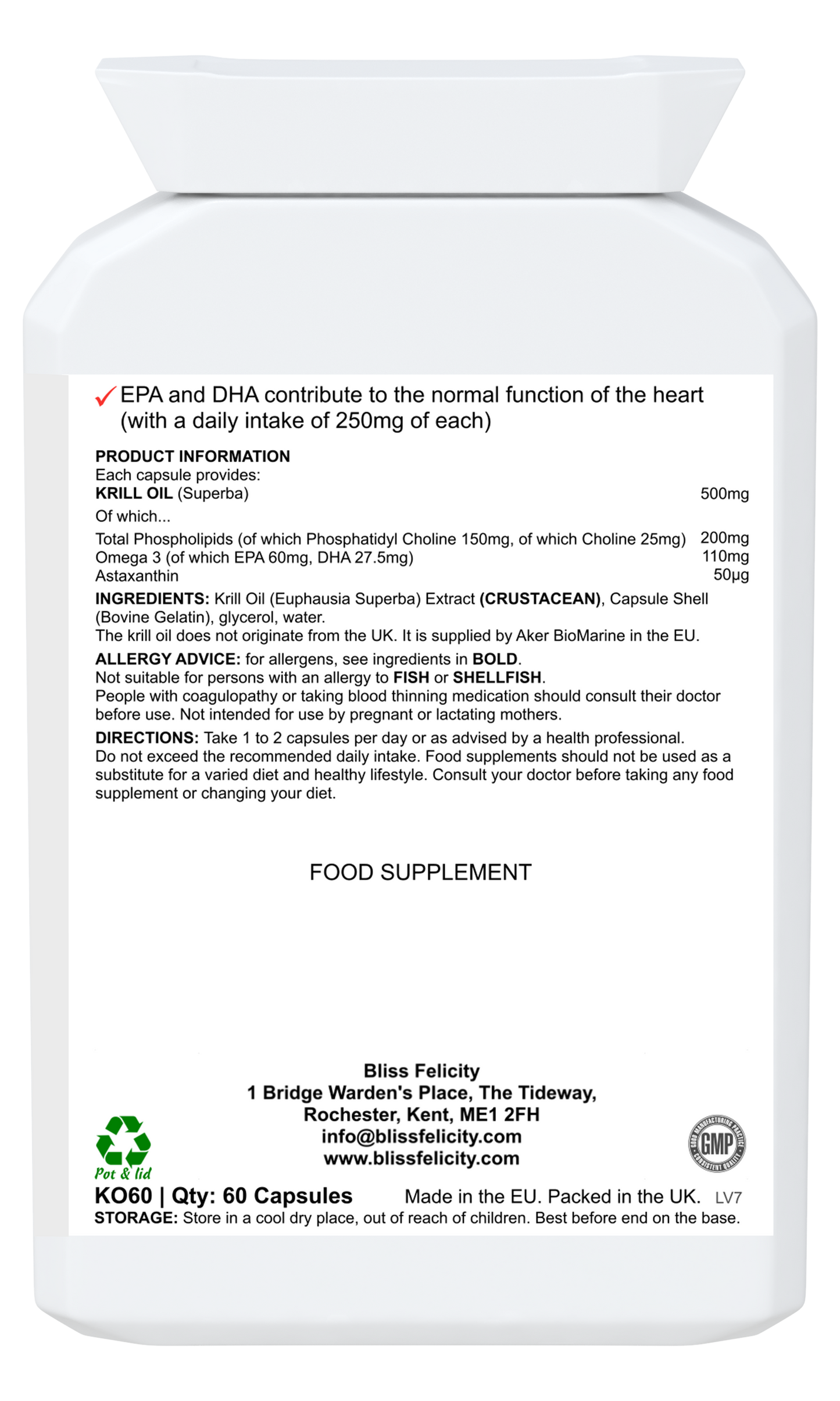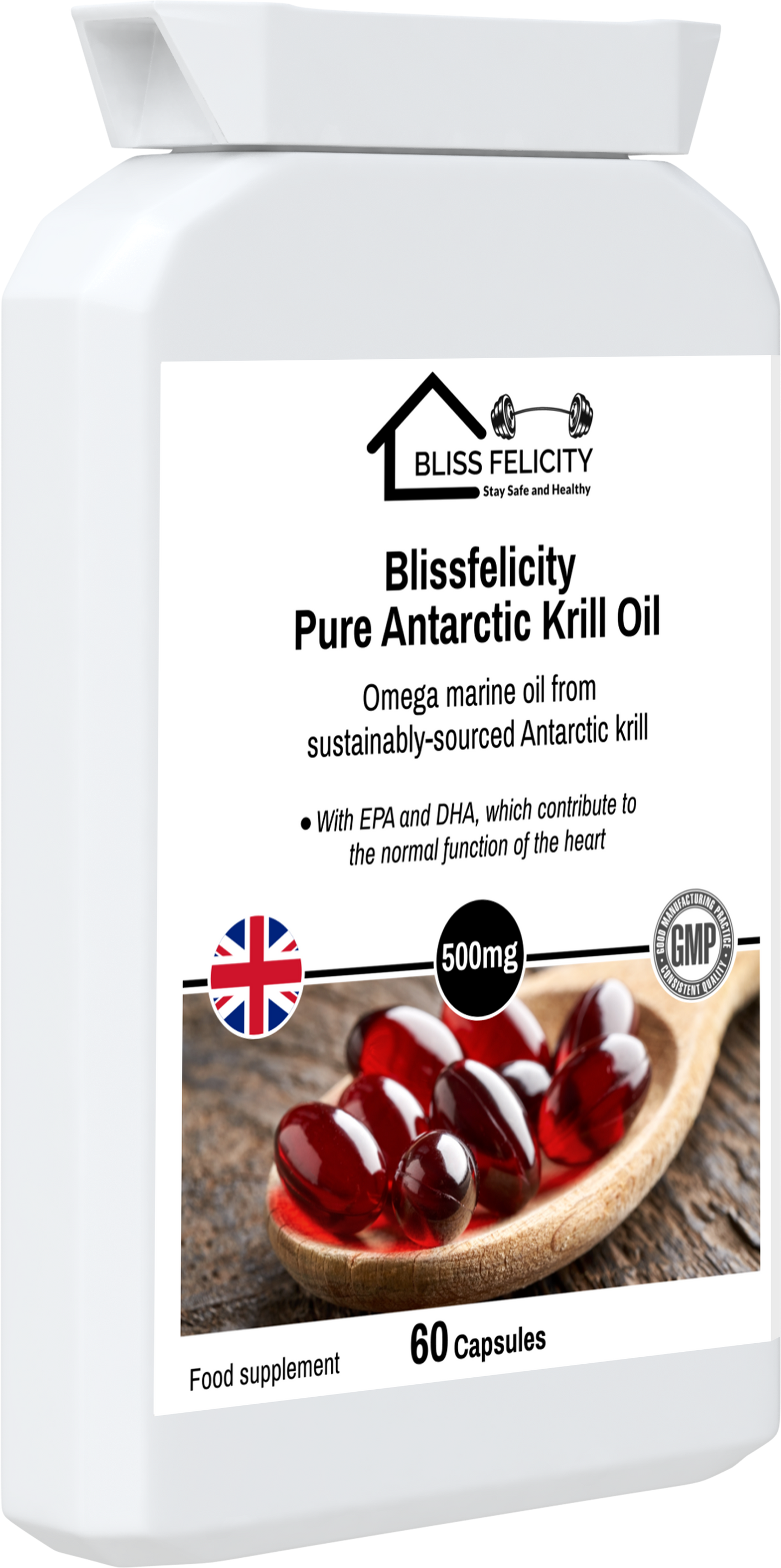


Krill oil comes from krill - tiny shrimp-like creatures that live in very cold ocean waters.
Krill oil contains two types of omega-3 fatty acid: eicosapentaenoic acid (EPA) and docosahexaenoic acid (DHA).
EPA and DHA contribute to the normal function of the heart (with a daily intake of 250mg).
DHA and EPA contribute to the maintenance of normal blood pressure (with a daily intake of 3g of EPA and DHA).*
DHA contributes to the maintenance of normal blood triglyceride levels (with a daily intake of 2g of DHA and when taken in combination with EPA).*
DHA contributes to maintenance of normal brain function (with a daily intake of 250mg of DHA).
DHA contributes to maintenance of normal vision (with a daily intake of 250mg of DHA).
Krill oil contains two types of omega-3 fatty acid: eicosapentaenoic acid (EPA) and docosahexaenoic acid (DHA).
EPA and DHA contribute to the normal function of the heart (with a daily intake of 250mg).
DHA and EPA contribute to the maintenance of normal blood pressure (with a daily intake of 3g of EPA and DHA).*
DHA contributes to the maintenance of normal blood triglyceride levels (with a daily intake of 2g of DHA and when taken in combination with EPA).*
DHA contributes to maintenance of normal brain function (with a daily intake of 250mg of DHA).
DHA contributes to maintenance of normal vision (with a daily intake of 250mg of DHA).







